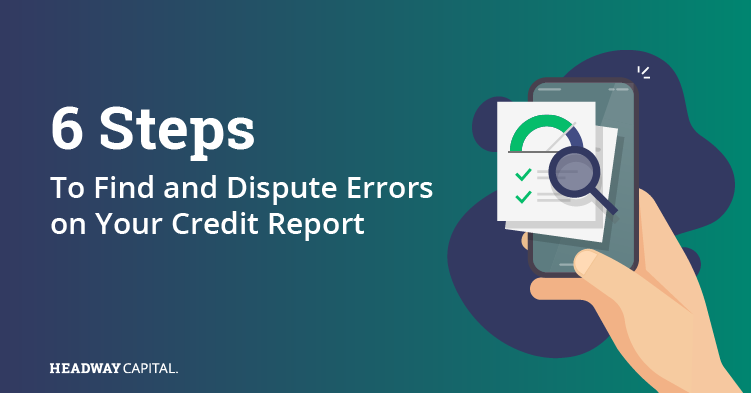How To Dispute Errors on Your Credit Report
[ad_1]

If you’re in need of small business financing, both your personal and business credit can affect your ability to secure a small business loan. Your personal credit health is especially important if your business is relatively new or hasn’t taken out a loan in the past.
Although credit reporting errors are relatively rare, such errors can negatively impact your credit scores. Learn how to access your full credit reports and dispute any reporting errors with our helpful guide.
Step 1: Access Your Full Credit Reports
There are three major personal credit reporting bureaus and three major business credit bureaus. Make sure to monitor your full credit reports from all major credit bureaus to get the full picture of your credit health.
To access your personal credit reports, head to AnnualCreditReports.com or use the links below:
To access your business credit reports, contact each bureau directly:
Step 2: Review Your Credit Report
Next, make sure all your information is complete and correct. It’s especially important that your financial data is accurate and free of errors, including your payment history, credit accounts and outstanding debt.
Personal credit reports may include:
- Personally identifiable information
- Credit accounts
- Credit inquiries
- Public records
- Collections
Business credit reports may include:
- Company information
- Historical data
- Registration details
- Government activity
- Operational data
- Industry information
- Public filings
- Financial accounts
- Payment history
Step 3: Document Any Credit Errors
If you notice any discrepancies or incorrect information on any report, make sure to document exactly what you found and where you found it. While credit bureaus collect the same types of information, they may not have exactly the same data. It’s possible to find an error that’s listed on one report and not others.
Step 4: Contact the Business That Supplied the Error
In order to start the error dispute process, contact any business or entity that supplied incorrect information to a credit bureau. Make sure to be as detailed as possible — you’ll also want to support your claim with evidence, payment receipts or other related documents when available. You should also include your full credit report with the error clearly highlighted or circled. Retain copies of any information you provide.
You can use this template to notify a business of a credit reporting error:
[Date]
[Your Name or Company Name]
[Your Address or Company Address]
Dear [Business Name],
Upon review of my full credit report, I noticed incorrect information that your company supplied to [Name of Credit Bureau] on my behalf. I have enclosed a copy of my credit report with the error(s) highlighted for your review. Please review and investigate the following information:
-
- [List the error and why the information is not correct here.]
I have also enclosed the following documents to support my claim:
-
- [List any documentation here that you include to support your claim. For example, provide statements, contracts, payment receipts or other data that help prove the information on your credit report is inaccurate.]
Thank you,
[Your Name]
Upon receipt of your letter, the company should research your credit error claim. Follow up if you don’t hear back from them.
Step 5: Contact the Credit Bureau with Errors
Since credit bureaus generally do not share information with one another, you’ll need to contact any bureau listing an error directly.
If you see an error on any personal credit report, use the appropriate link below to dispute incorrect information:
To dispute an error on your business credit report, contact the credit bureau using the appropriate link below:
Keep copies of any documentation you provide to help support your claim. You can use this template to dispute incorrect information on a credit report:
[Date]
[Your Name or Company Name]
[Your Address or Company Address]
Dear [Name of Credit Bureau]
I noticed incorrect information on my [personal or business] credit report that was furnished by [identify the business or entity that supplied incorrect information to the bureau].
Please investigate the incorrect information and remove it from my report. I have included a copy of my full credit report with the error highlighted for your review. Additionally, I have also included following documentation which supports my claim:
-
- [List any documentation here that you include to support your claim. For example, provide statements, contracts, payment receipts or other data that help prove the information on your credit report is inaccurate.]
Thank you,
[Your Name]
The credit bureau should then research your claim. If your claim is correct, they should remove the error from your credit report.
Step 6: Continue to Monitor Your Credit
It’s important to continue monitoring your personal and business credit reports in order to maintain good credit health. Occasionally, you may need to repeat the error submission process if you notice that the error is still listed on your report.
[ad_2]
Source link








